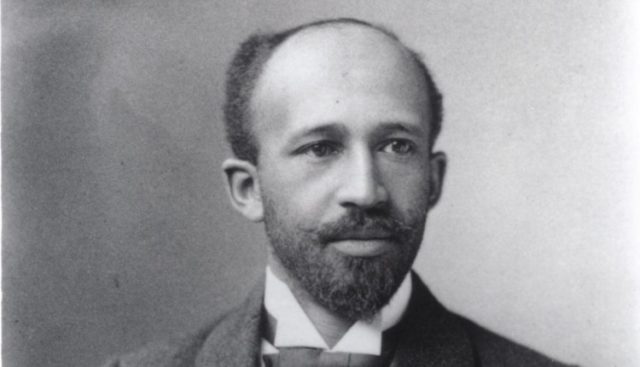Honoring Du Bois as our final African American pioneer in education.

In commemoration of Black History Month 2019, City Year Philadelphia has recognized and paid homage to African-American pioneers in education.Ruby Bridges, the first African-American to attend a segregated school in the south was our first honoree. Next, Lincoln University — the first degree-granting HBCU in the nation — was highlighted. To conclude our Black History Month series, we offer tribute to W.E.B. Du Bois, not only an African-American pioneer in education, but a significant figure within African-American activism and culture.
William Edward Burghardt Du Bois was born February 23,1968 in Great Barrington, Massachusetts to Mary Silvina Burghardt Du Bois and Alfred Du Bois. His father died before William was old enough to remember him. At a very young age, Du Bois recalls seeing his mother struggle to make ends meet for the two of them, yet always placing a strong emphasis on education, knowing that it could be the gateway to opportunities and William’s future success. In 1884, Mary Du Bois passed away and William went to work in a local mill.
Despite the passing of both his mother and father, Du Bois continued to excel at Great Barrington High School where he was the only student of color. So much so that after his graduation in 1884, the high schools principal helped arrange a church scholarship for him to attend Fisk University in Nashville, Tennessee. Du Bois describes his first day at Fisk as being a life-changing experience saying, “I was thrilled to be, for the first time, among so many people of my own color or rather of such various and extraordinary colors.”
While attending Fisk, Du Bois gained tremendous insights on racism and race relations. In 1888 he graduated — a year early — with his bachelor’s degree. During that same year, he enrolled in Harvard University where, in 1890, he graduated cum laude with a second bachelor s degree. A year later, he obtained a Master of Arts in History from Harvard then continued his education at the University of Berlin in Germany for two years.
In 1893, Du Bois declared that he’d finally realized what he wanted to do with his life. “To make a name in science, to make a name in literature, and to raise my race.’
He returned to Harvard and, in 1895, received a Ph.D. in History, making him the first African-American to receive a doctorate degree from the university.
Following this time period, Du Bois continued on to make a name for himself as a scholar, author, teacher, and activist. Noted accomplishments include authoring The Philadelphia Negro, one of the first in-depth studies of the life of African-Americans within an urban community, plus 14 other African-American studies while teaching history and economics at Atlanta University. Also while teaching at Atlanta University, Du Bois published two of his most acclaimed books: Black Reconstruction in America: An Essay Toward a History of the Part Which Black Folk Played in the Attempt to Reconstruct Democracy in America and Dusk of Dawn: An Essay Toward an Autobiography of a Race Concept.
Du Bois was also a fervent activist. In 1905, he founded the Niagara Movement, a group of black professionals whose primary mission was to fight for full equality in every area of life for African-Americans and all other Americans. In 1909, the movement merged with the NAACP. Then, in 1919 Du Bois set out to unite people of color from across the globe by starting the first Pan-African Congress in Paris. He went on to establish congresses in Paris, Brussels, London, Lisbon, and New York City.
W.E.B. Du Bois not only serves as a pioneer in education for being the first African-American to receive a Ph.D. from Harvard University, but as one of the greatest scholars and activists the world has ever seen. Through activism and the research that he conducted, his contributions to the betterment of life for African-Americans can still be seen today.
Sadly, On August 27, 1963, Du Bois passed away. He was 95 years old.
City Year Philadelphia is pleased to honor W.E.B. Du Bois and other prominent figures within Black history — particularly those who have made historic impact in the field of education.
Happy Black History Month.
Related stories
Student Success Coach Riya Sembhi (pictured front row, right, with her Sullivan Elementary team) shares her experiences serving a gap...
Read more about My Gap Year with City Year PhiladelphiaLeft: Hanna during her time serving as a City Year Philadelphia AmeriCorps member, 2019-2020. Right: Hanna in her current role...
Read more about Alumni Spotlight: Hanna Kim (‘20), Community Schools Volunteer Coordinator, City of PhiladelphiaPhiladelphia City Council President Kenyatta Johnson (pictured center, gray suit) is joined by leaders of local youth-serving organizations—including CYP Executive...
Read more about Spotlight on Kenyatta Johnson, City Year Philly’s 2024 Idealist of the YearIf you speak with an HBCU alum about their experience, you’ll quickly learn that service to the community is one...
Read more about Diversity, leadership and community: reflections of an HBCU alum















